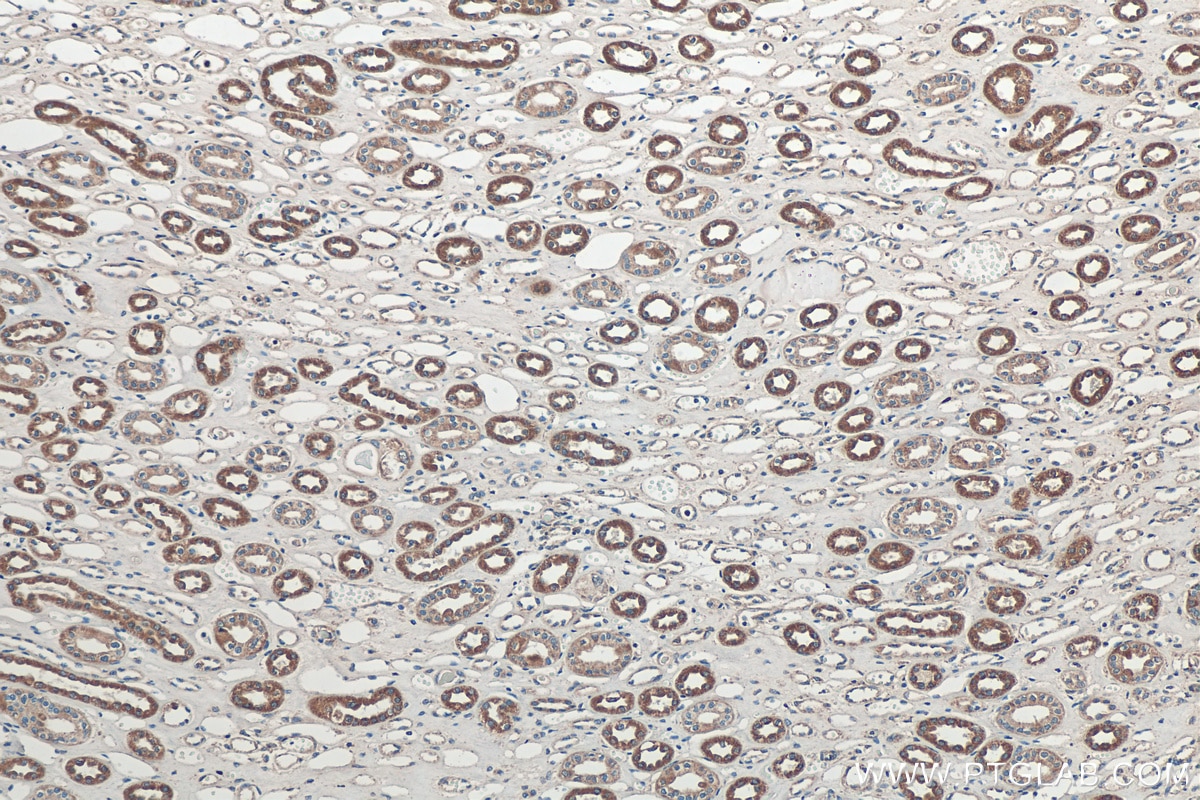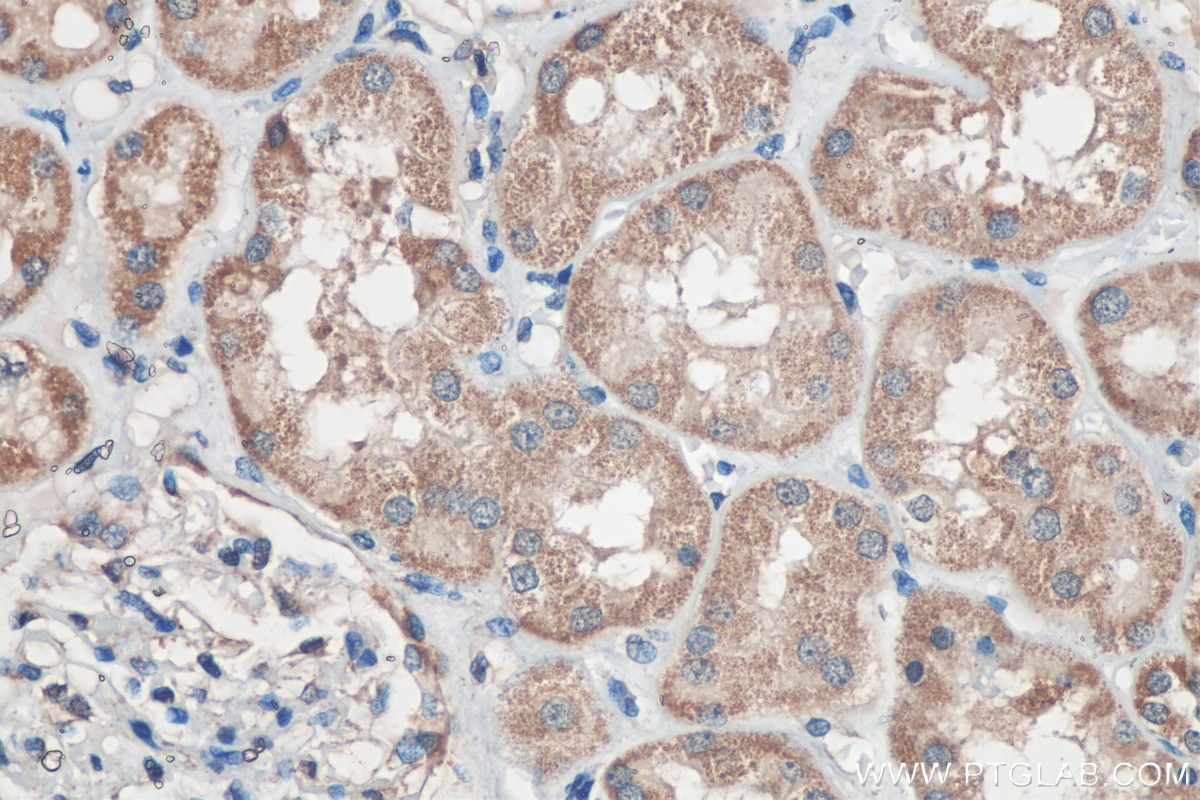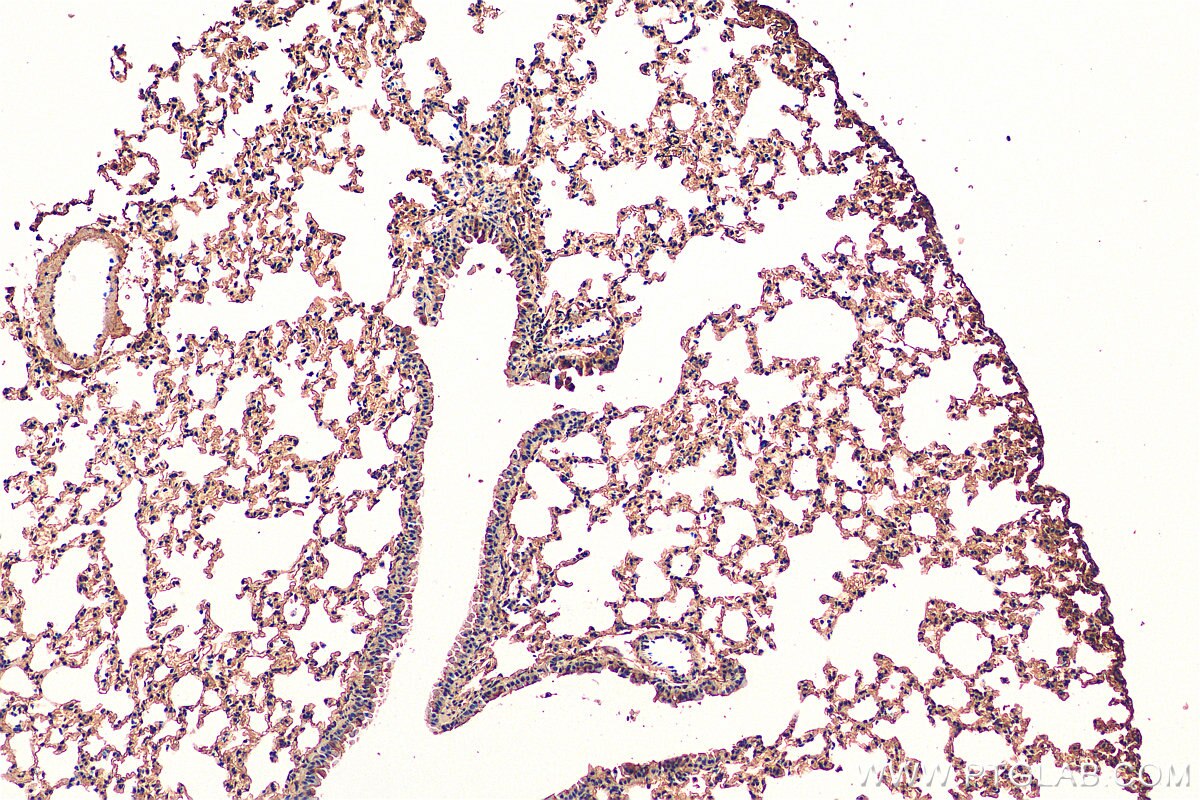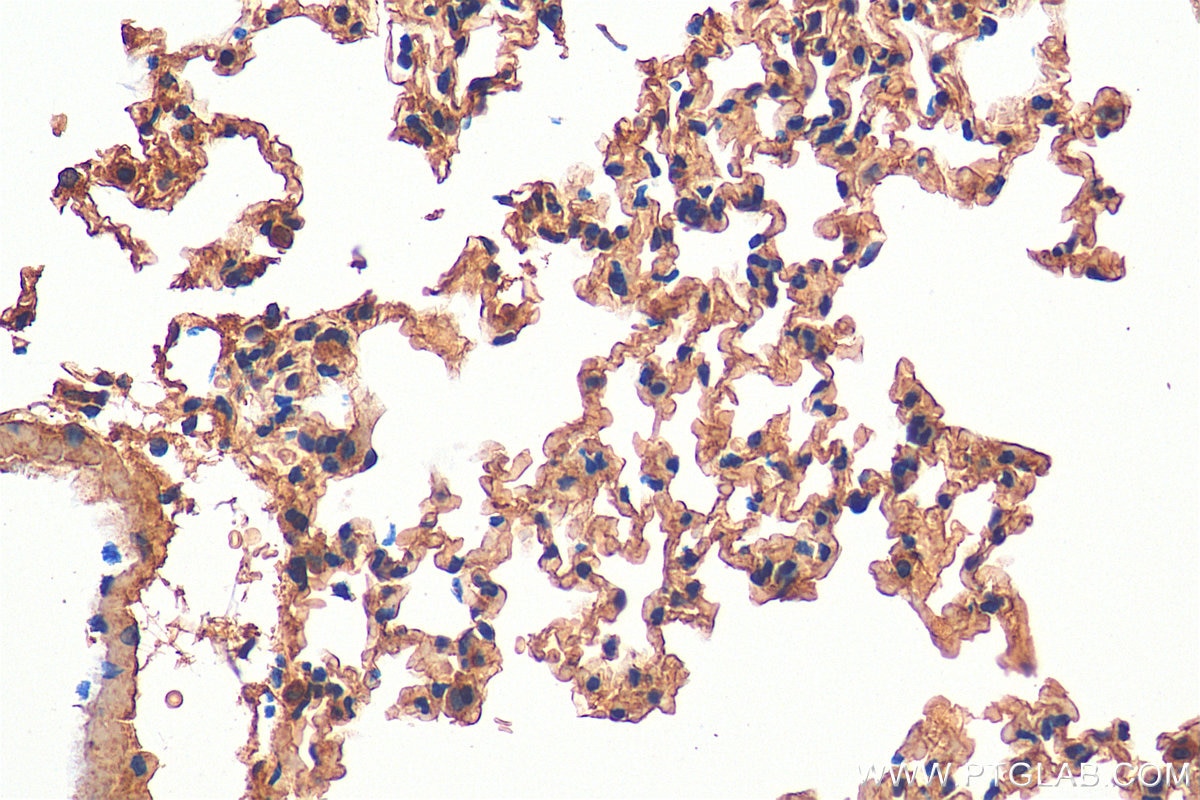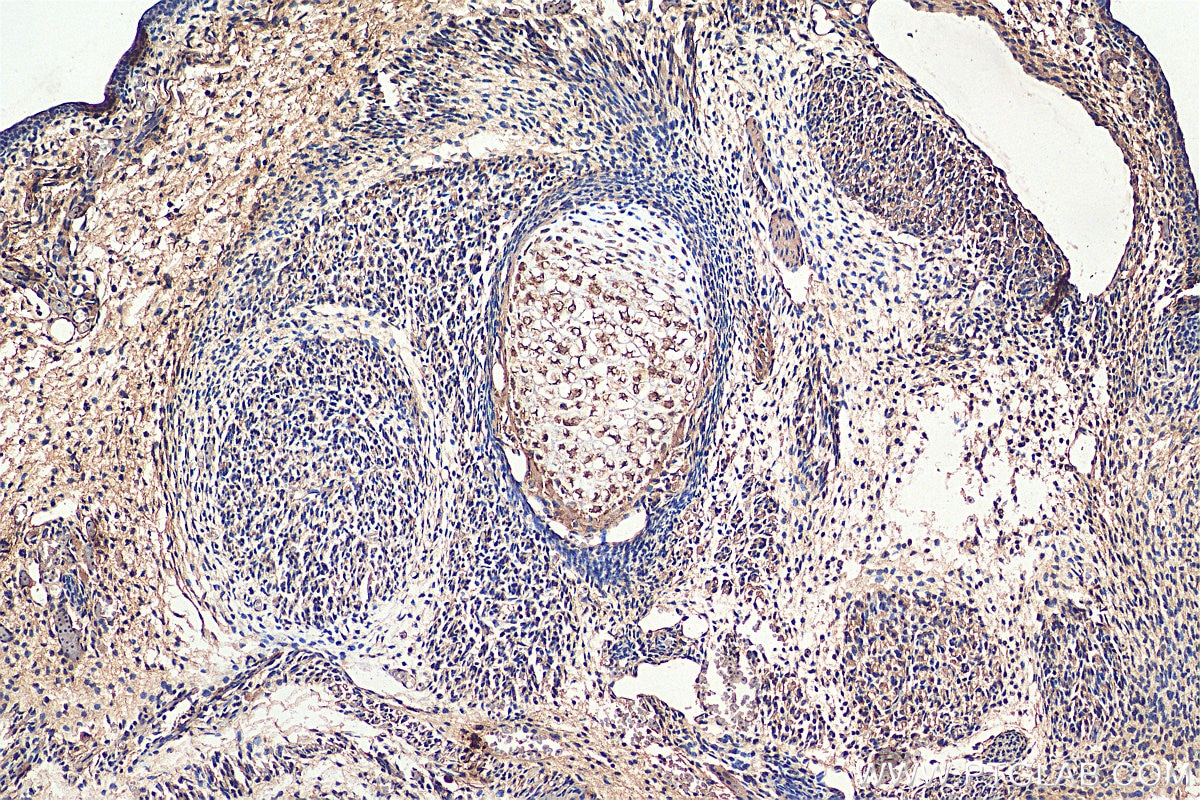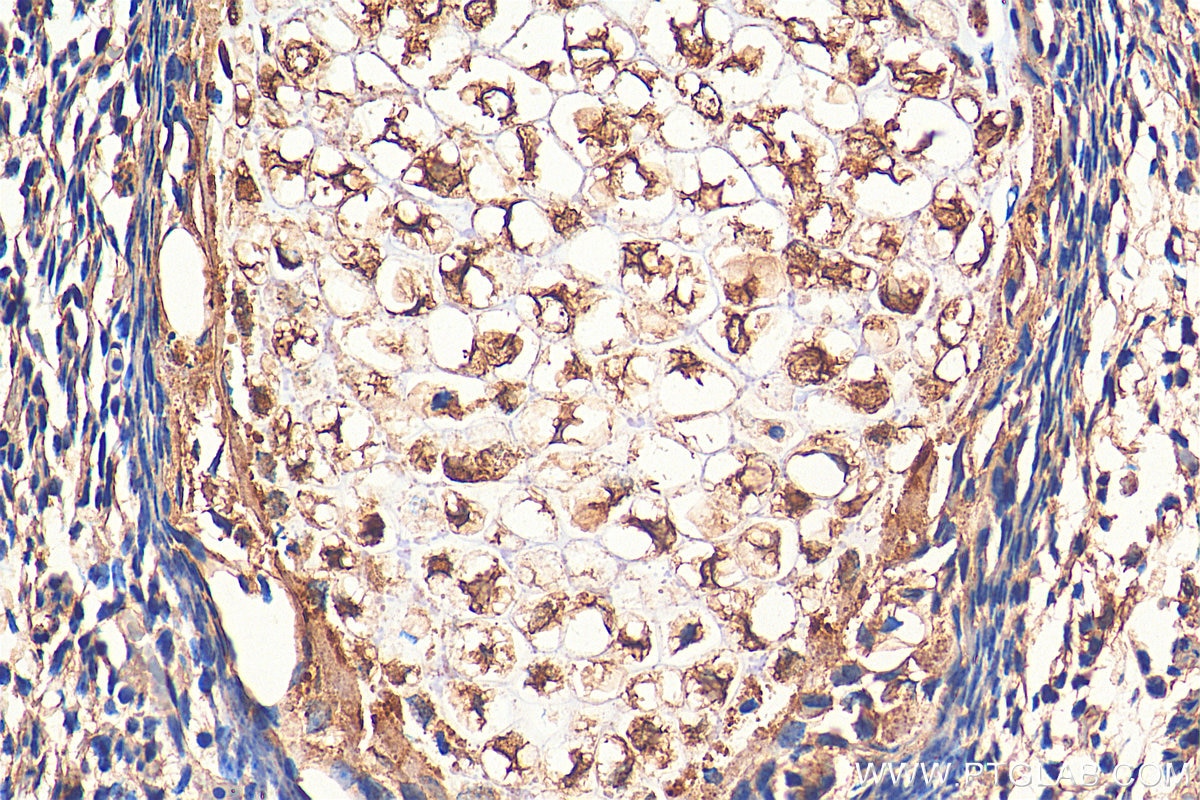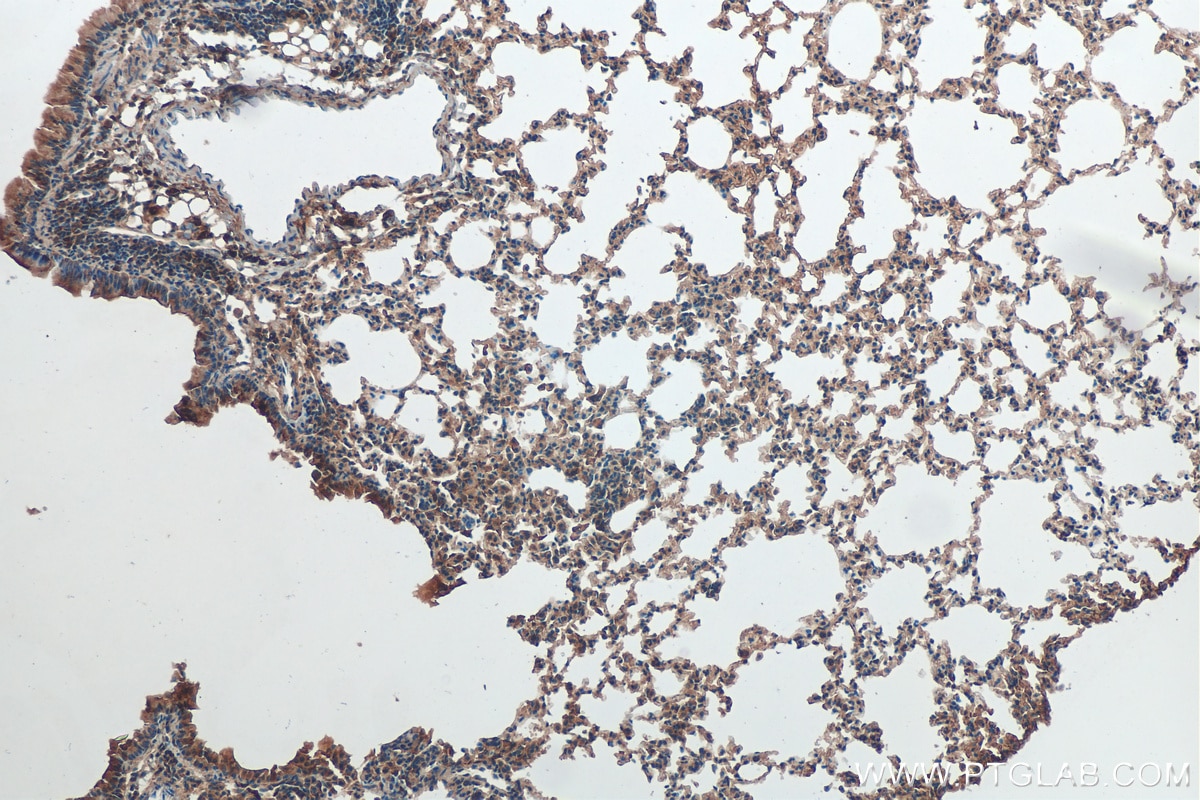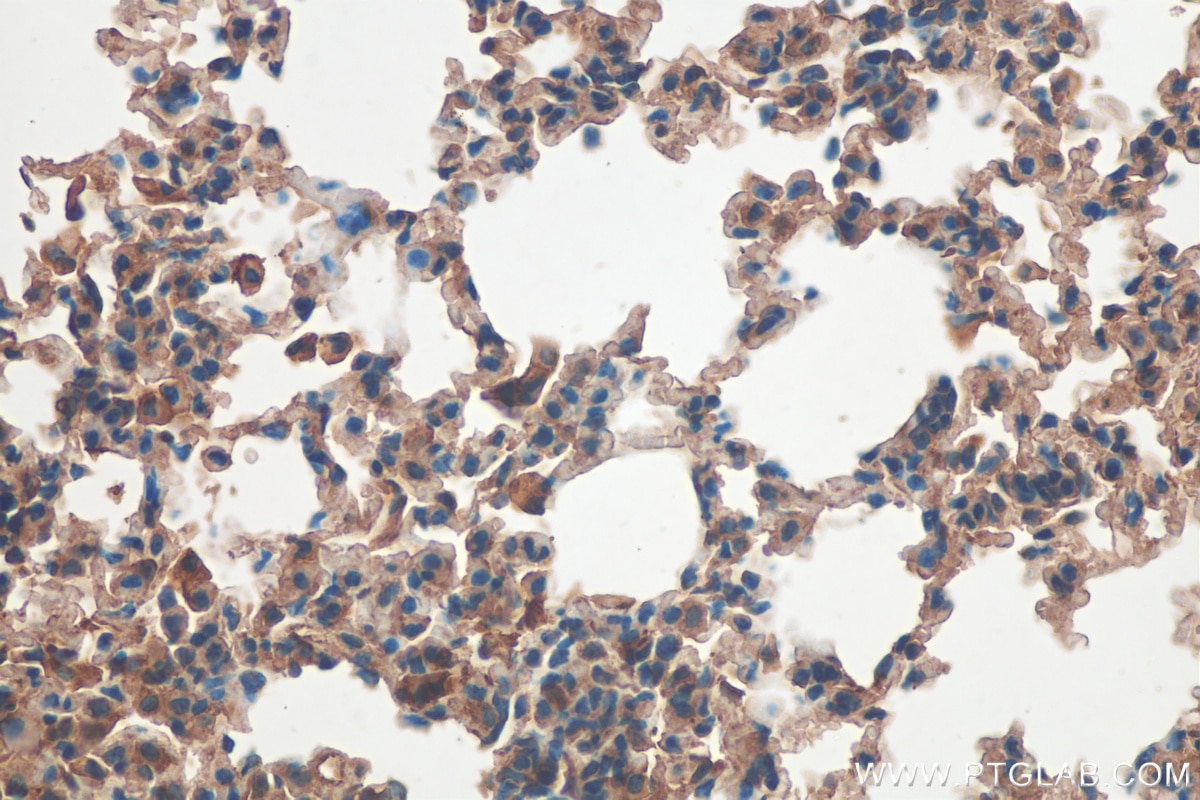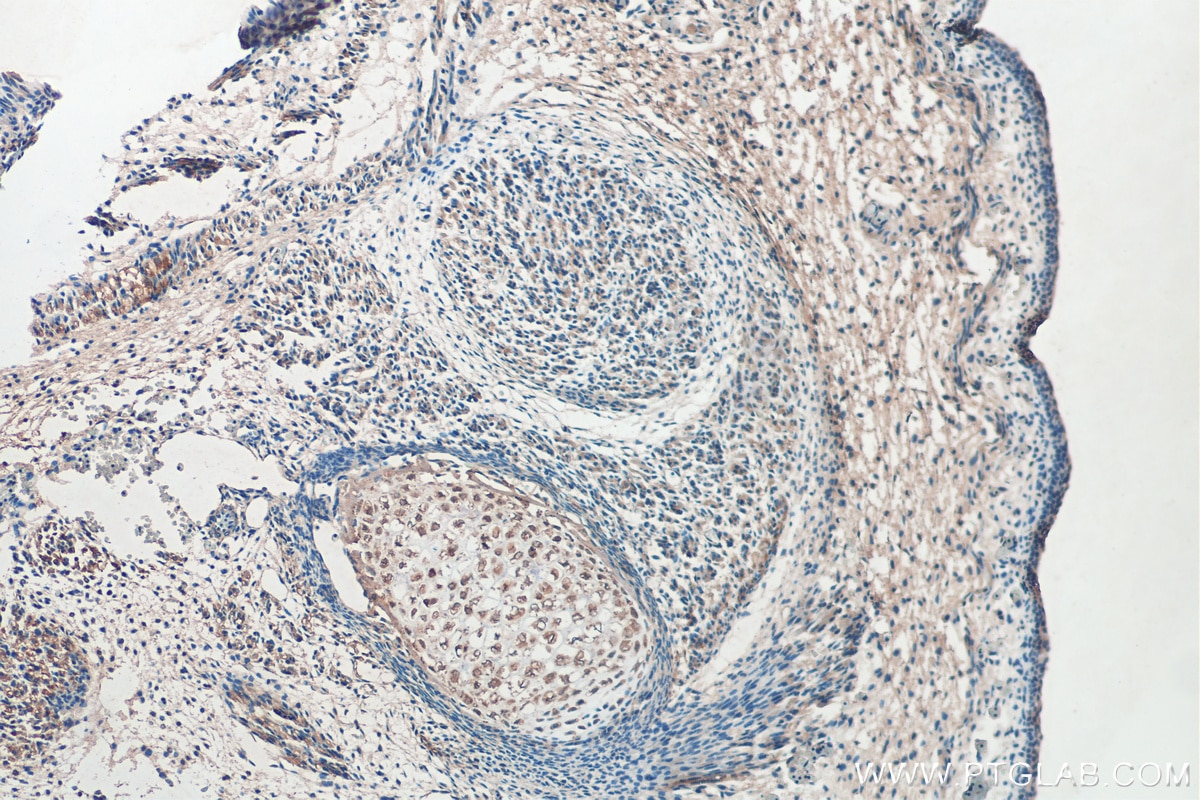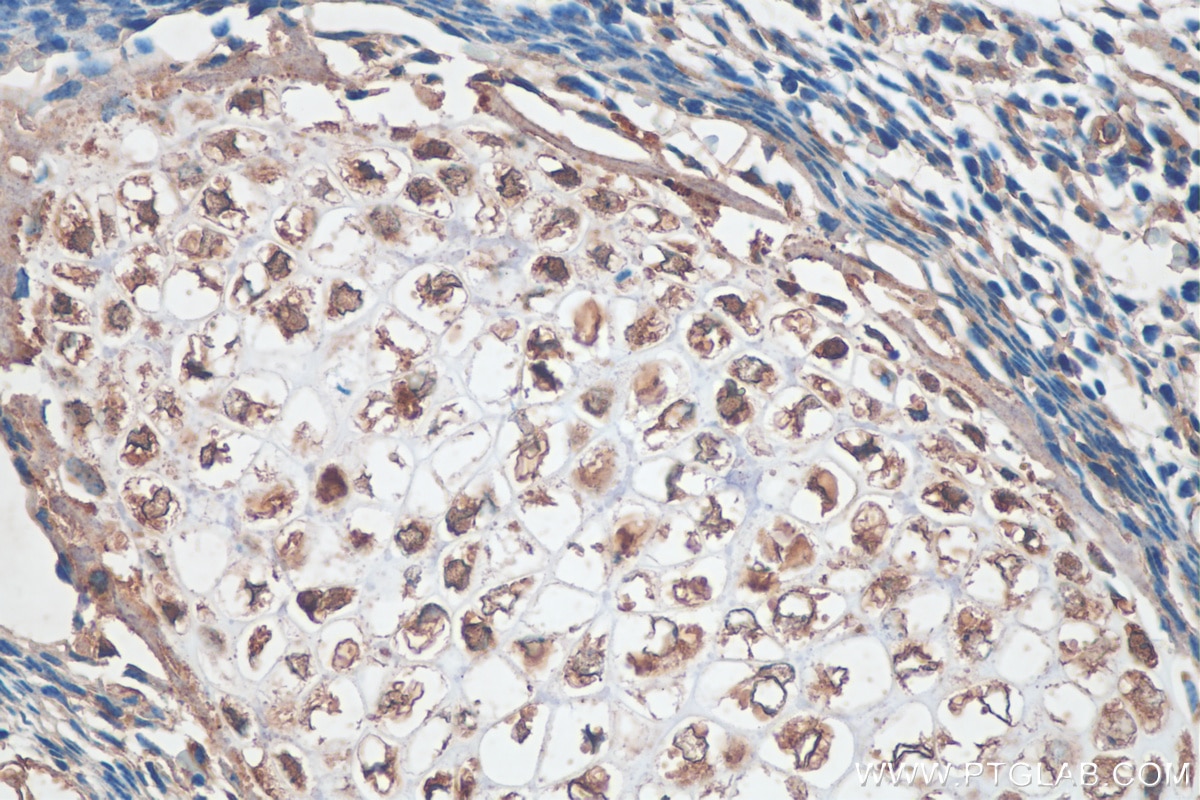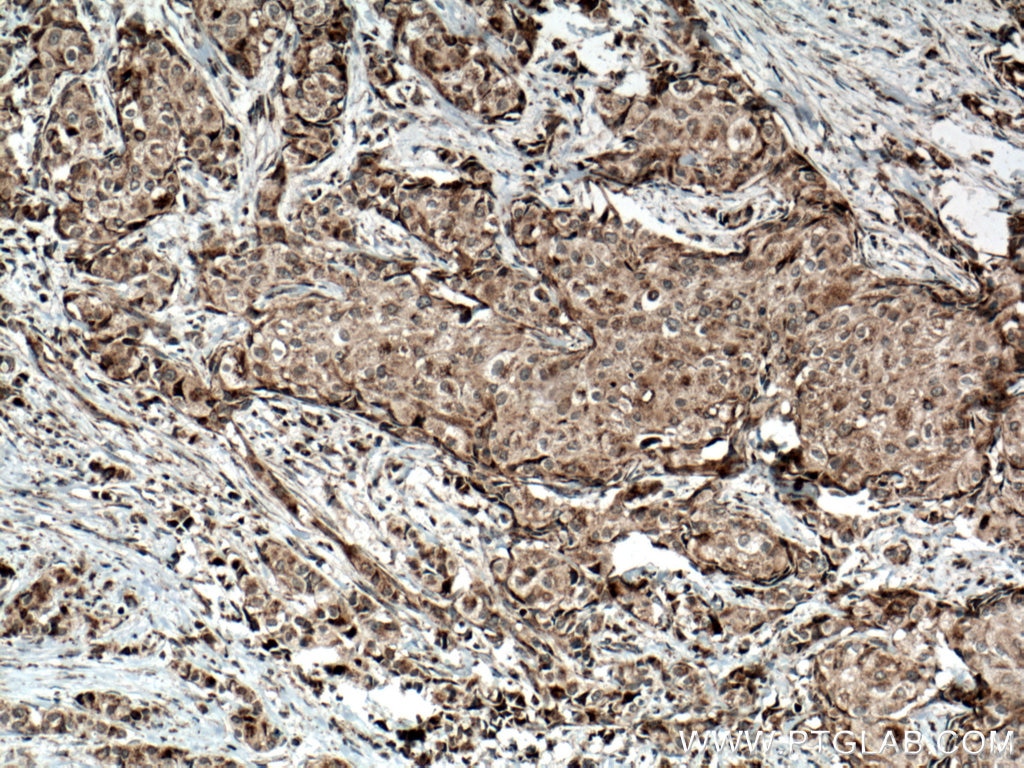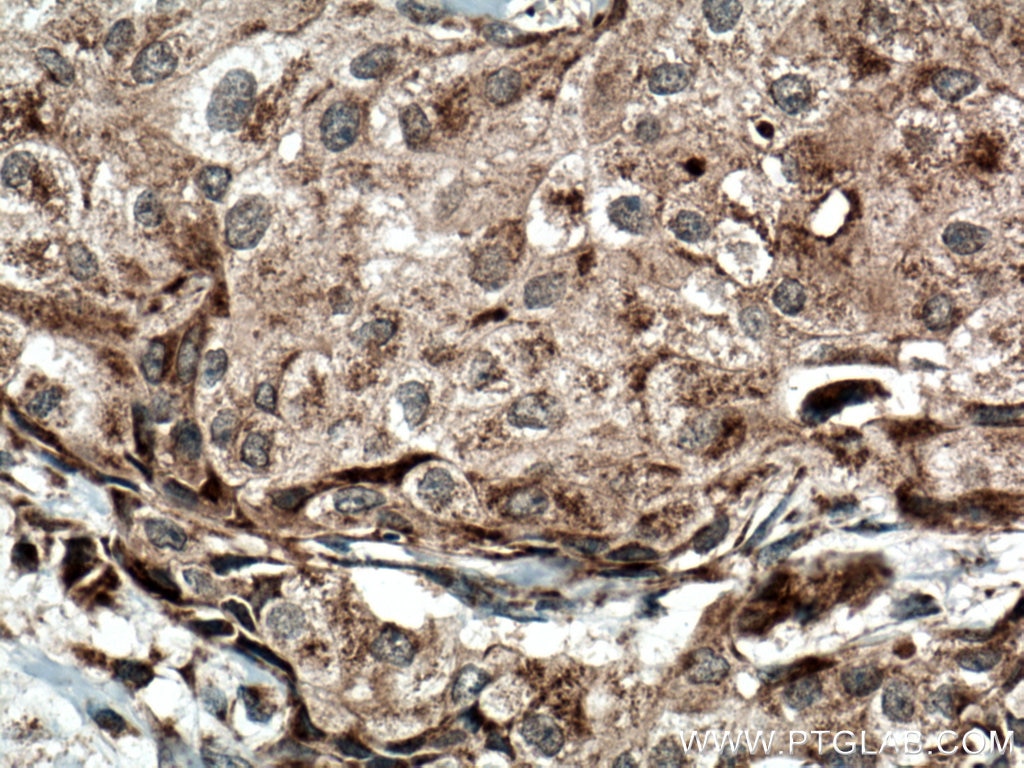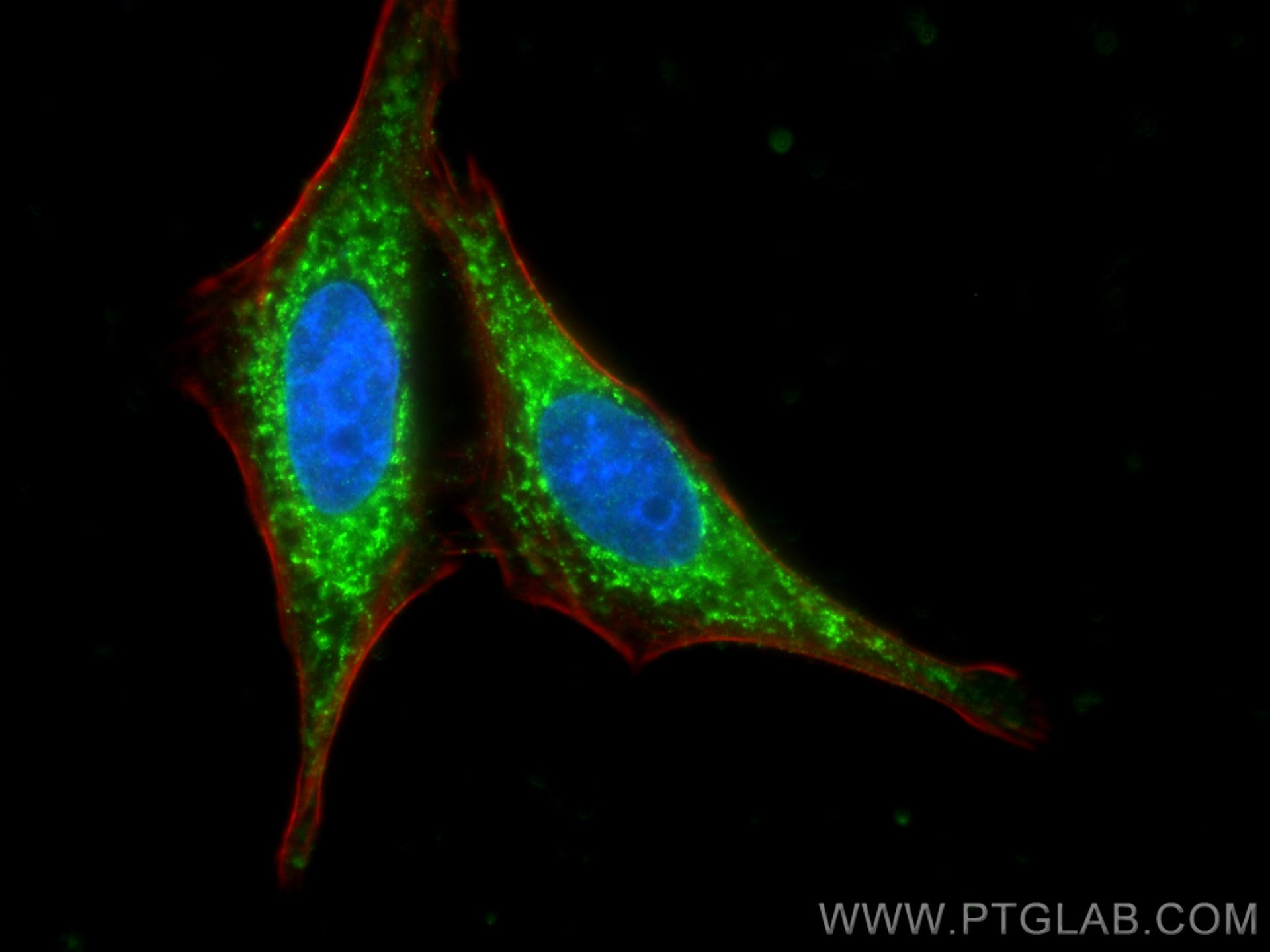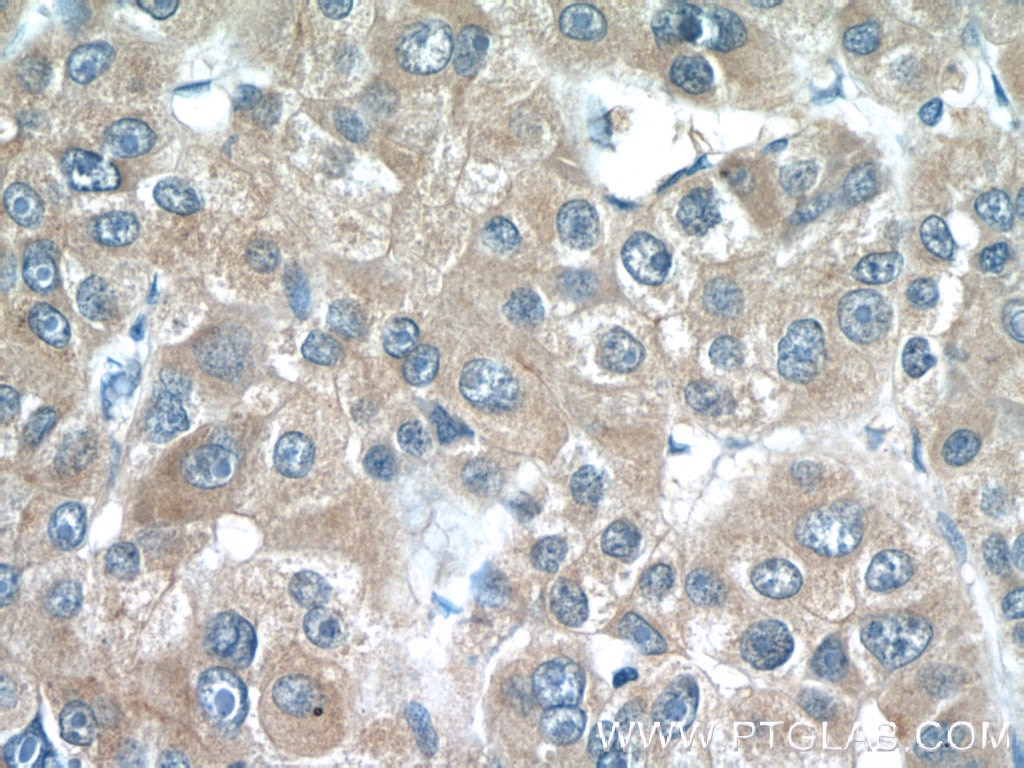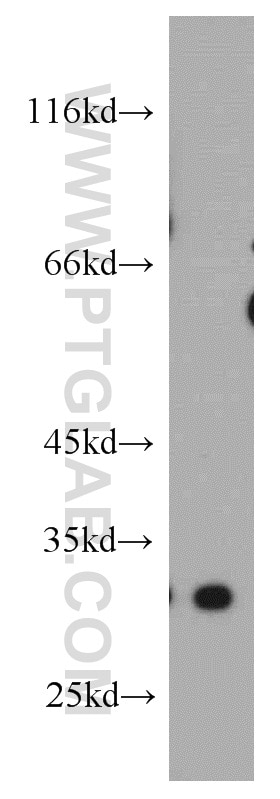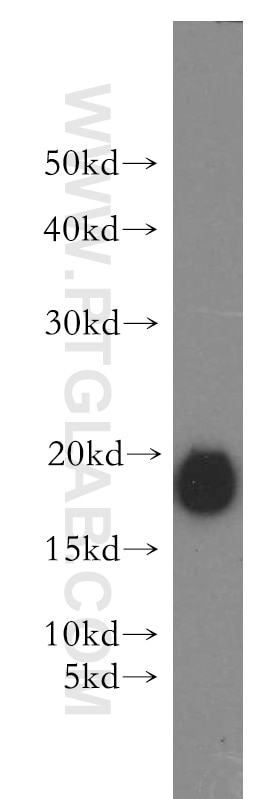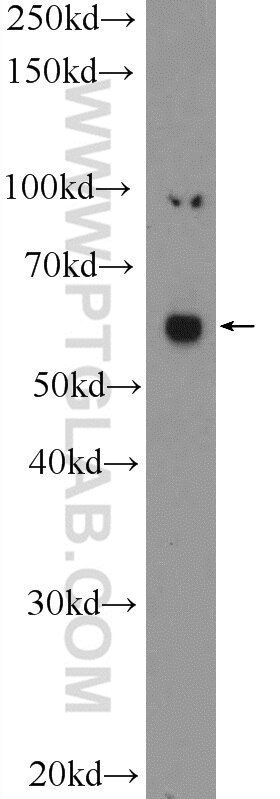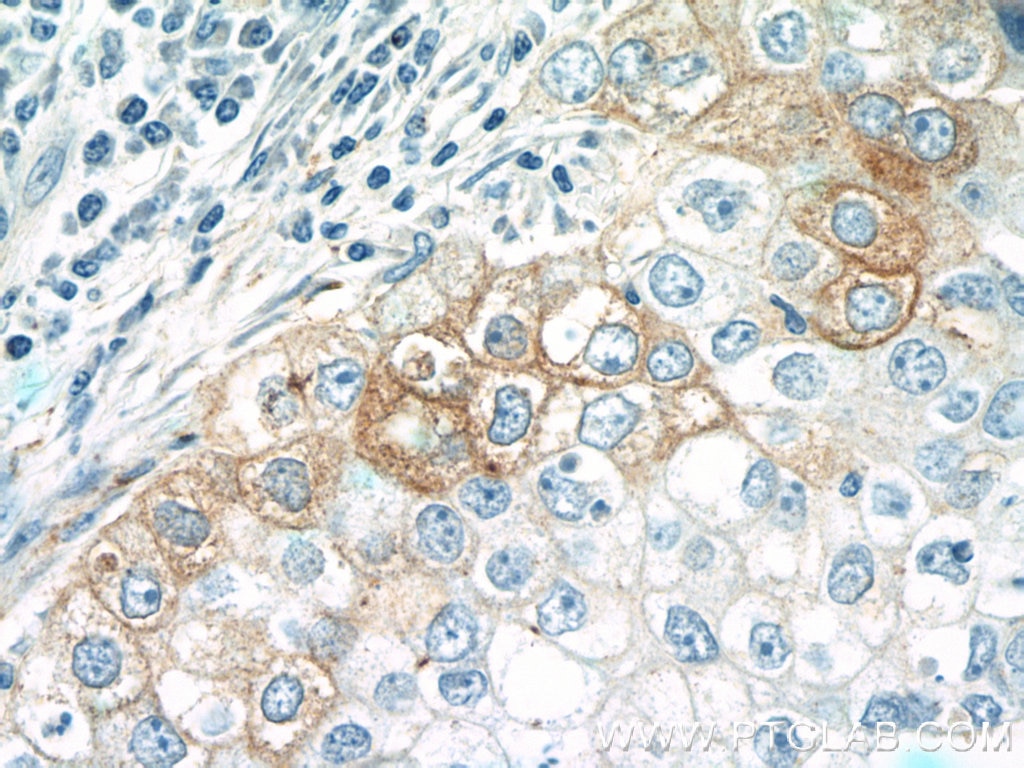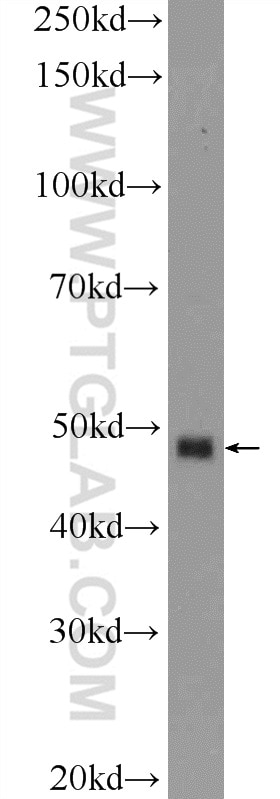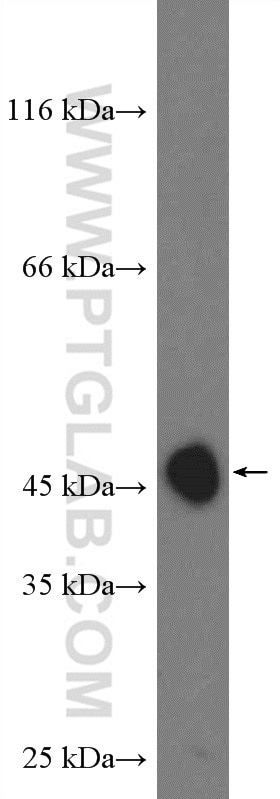- Phare
- Validé par KD/KO
Anticorps Polyclonal de lapin anti-Sclerostin
Sclerostin Polyclonal Antibody for IF, IHC, ELISA
Hôte / Isotype
Lapin / IgG
Réactivité testée
Humain, souris et plus (1)
Applications
WB, IHC, IF/ICC, ELISA
Conjugaison
Non conjugué
N° de cat : 21933-1-AP
Synonymes
Galerie de données de validation
Applications testées
| Résultats positifs en IHC | tissu rénal humain, tissu de cancer du sein humain, tissu embryonnaire de souris, tissu pulmonaire de souris il est suggéré de démasquer l'antigène avec un tampon de TE buffer pH 9.0; (*) À défaut, 'le démasquage de l'antigène peut être 'effectué avec un tampon citrate pH 6,0. |
| Résultats positifs en IF/ICC | cellules HepG2, |
Dilution recommandée
| Application | Dilution |
|---|---|
| Immunohistochimie (IHC) | IHC : 1:50-1:500 |
| Immunofluorescence (IF)/ICC | IF/ICC : 1:50-1:500 |
| It is recommended that this reagent should be titrated in each testing system to obtain optimal results. | |
| Sample-dependent, check data in validation data gallery | |
Applications publiées
| KD/KO | See 1 publications below |
| WB | See 3 publications below |
| IHC | See 8 publications below |
| IF | See 2 publications below |
Informations sur le produit
21933-1-AP cible Sclerostin dans les applications de WB, IHC, IF/ICC, ELISA et montre une réactivité avec des échantillons Humain, souris
| Réactivité | Humain, souris |
| Réactivité citée | rat, Humain, souris |
| Hôte / Isotype | Lapin / IgG |
| Clonalité | Polyclonal |
| Type | Anticorps |
| Immunogène | Sclerostin Protéine recombinante Ag16567 |
| Nom complet | sclerosteosis |
| Masse moléculaire calculée | 213 aa, 24 kDa |
| Numéro d’acquisition GenBank | BC101086 |
| Symbole du gène | Sclerostin |
| Identification du gène (NCBI) | 50964 |
| Conjugaison | Non conjugué |
| Forme | Liquide |
| Méthode de purification | Purification par affinité contre l'antigène |
| Tampon de stockage | PBS avec azoture de sodium à 0,02 % et glycérol à 50 % pH 7,3 |
| Conditions de stockage | Stocker à -20°C. Stable pendant un an après l'expédition. L'aliquotage n'est pas nécessaire pour le stockage à -20oC Les 20ul contiennent 0,1% de BSA. |
Informations générales
Sclerostin is a secreted glycoprotein with a C-terminal cysteine knot-like (CTCK) domain and sequence similarity to the DAN (differential screening-selected gene aberrative in neuroblastoma) family of bone morphogenetic protein (BMP) antagonists. Loss-of-function mutations in this gene are associated with an autosomal-recessive disorder, sclerosteosis, which causes progressive bone overgrowth. A deletion downstream of this gene, which causes reduced sclerostin expression, is associated with a milder form of the disorder called van Buchem disease
Protocole
| Product Specific Protocols | |
|---|---|
| IHC protocol for Sclerostin antibody 21933-1-AP | Download protocol |
| IF protocol for Sclerostin antibody 21933-1-AP | Download protocol |
| Standard Protocols | |
|---|---|
| Click here to view our Standard Protocols |
Publications
| Species | Application | Title |
|---|---|---|
EMBO Mol Med Sigma-1 receptor attenuates osteoclastogenesis by promoting ER-associated degradation of SERCA2. | ||
Aging (Albany NY) Cyclooxygenase-2/sclerostin mediates TGF-β1-induced calcification in vascular smooth muscle cells and rats undergoing renal failure. | ||
Front Oncol Sclerostin Suppression Facilitates Uveal Melanoma Progression Through Activating Wnt/β-Catenin Signaling Via Binding to Membrane Receptors LRP5/LRP6.
| ||
Ann Hematol Higher Sclerostin/SOST expression is associated with lower percentage of circulatory blasts and better prognosis in patients with myelofibrosis. | ||
Clin Oral Investig Mechanisms of sphingosine-1-phosphate (S1P) signaling on excessive stress-induced root resorption during orthodontic molar intrusion. | ||
J Orthop Surg Res Lysyl oxidase inhibits BMP9-induced osteoblastic differentiation through reducing Wnt/β-catenin via HIF-1a repression in 3T3-L1 cells |
